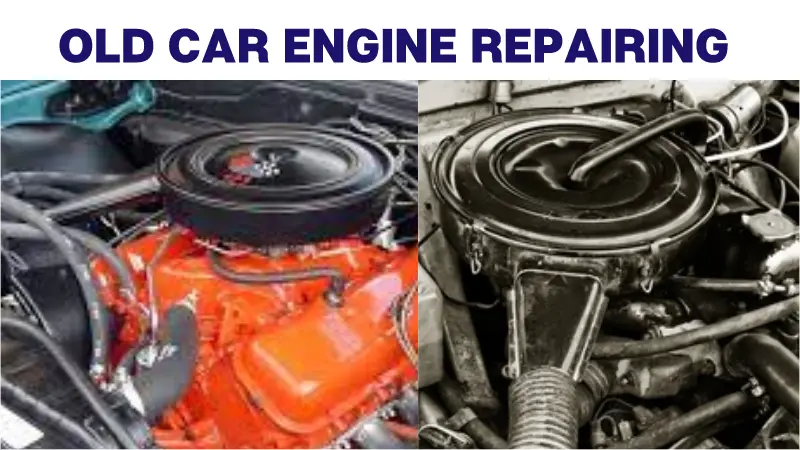The Impact of Alternative Fuels on Engine Performance and Emissions

Explore the impact of alternative fuels on engine performance and emissions. Discover how these fuels reduce emissions, enhance engine efficiency, and contribute to a sustainable future. Learn about biofuels, hydrogen, and natural gas as viable alternatives to traditional fossil fuels.
Introduction
In today’s world, where worries about climate change and pollution are at an all-time high, finding better and more sustainable options for fossil fuels is more important than ever. One of the most important considerations is how different energies affect engine speed and pollution. This piece looks at this topic from many different angles and discusses the pros and cons of using alternative fuel in engines.
Benefits of Alternative Fuels
Alternative fuels are any fuels besides gasoline and diesel made from things other than petroleum. These fuels are made to reduce greenhouse gas pollution, improve air quality, and drive cars to run better overall. Let’s learn more about how different fuels affect how healthy engines run and how much pollution they make.

1. Reduced Emissions:
One of the best things about alternative fuels is that they can reduce dangerous pollution. Traditional fossil fuels like gasoline and oil release much carbon dioxide (CO2) and other pollution into the air. On the other hand, alternative fuels produce fewer emissions and can make a big difference in lowering greenhouse gas emissions.
2. Improved Air Quality:
We can lessen the harmful effects of traffic on the air quality by using different fuels. Particulate matter and nitrogen oxides, which are significant causes of smog and breathing problems, are made less by these fuels. Switching to other fuels can help make towns better and healthier places to live.
3. Enhanced Engine Performance:
Alternative fuels can improve engine efficiency when made correctly. For example, fuels with ethanol have higher octane numbers than standard gasoline, which lets engines make more power. Also, alternative fuels often have better lubricity, which keeps engine parts from wearing out as quickly and makes them last longer.
4. Diversification of Energy Sources:
Relying too much on fossil fuels is risky because prices can change, and supplies can be cut off. By using different kinds of power, we can reduce our reliance on resources that don’t keep coming back. This helps make sure that there is a steady supply of energy.
5. Promotion of Technological Advancements:
Using different fuels has pushed designers and engineers to come up with new ways to build and use engines. Manufacturers are spending money on research and development to improve engines for alternative fuels. This will lead to more efficient cars and better for the environment. This constant growth is suitable for both customers and the business.
Types of Alternative Fuels

1.Biofuels:
Biofuels come from sources that can be used repeatedly, like crops, farm waste, and algae. The most popular kinds of biofuels are ethanol and biodiesel. Usually, ethanol is mixed with gasoline, and biofuel is used instead of diesel. These biofuels are becoming more popular because they produce fewer carbon gasses and can be used in engines already in use.
2.Hydrogen:
Hydrogen is a flexible alternative fuel made from water, natural gas, and waste, among other things. Hydrogen fuel cells make power through an electrical process that gives off only water vapor. Hydrogen fuel cells are known for being very efficient and causing no pollution, which makes them a good choice for transportation in the future.
3.Natural Gas:
Natural gas is an alternative natural fuel that puts out less carbon than gasoline or diesel. Compressed Natural Gas (CNG) and Liquefied Natural Gas (LNG) are the two most common natural gas used in cars. Natural gas cars have less pollution and can help us switch to cleaner energy while still using the facilities we already have.
The Impact on Engine Performance
Alternative fuels have an apparent effect on how well an engine works. Here are some essential things to think about:

1. Power Output:
Blends of ethanol and other fuels with higher octane numbers can help motors make more power. Fuels with a higher octane rating burn more efficiently, which makes the engine run better. But it’s important to remember that the power gain can change based on how the machine is built and how well it’s optimized for different fuels.
2. Fuel Efficiency:
Alternative fuels can improve fuel economy when made and used correctly. Ethanol, for example, has more oxygen, which means it burns more completely and uses less energy. This increased effectiveness saves money and has less of an effect on the earth.
3. Engine Longevity:
Using alternative fuels, especially those with better lubricity, can help make engine parts last longer. Better oil reduces friction and wear, lowering upkeep costs and making the engine last longer. But it’s essential to think about how well different fuels work with the materials in the machine so that nothing terrible happens.
The Impact on Emissions
Alternative fuels are a vital part of making cars less polluting. Let’s look at how they affect different kinds of emissions:
1. Carbon Dioxide (CO2) Emissions:
CO2 is a warming gas that makes climate change worse. Alternative fuels, such as biofuels and hydrogen, have less carbon than traditional fuels, releasing less CO2. This cuts down on the carbon impact of movement as a whole.
2. Particulate Matter (PM) Emissions:
Particulate matter is made up of tiny particles in the air that can be bad for people’s health. When burned, alternative fuels, especially those made from green sources, release less carbon pollution. This decrease in particulate matter makes the air cleaner and helps people breathe better.
3. Nitrogen Oxides (NOx) Emissions:
Nitrogen oxides are a group of dangerous gasses that make the air dirty and help smog form. Alternative fuels like natural gas and hydrogen have less nitrogen in them, which means they produce less NOx. This decrease helps improve the air pollution in the area and less affects people’s health.
Conclusion
Different fuels affect how healthy engines run and how much pollution they put out. There are many perks to using these fuels, such as less pollution, better engine performance, and more energy sources. Biofuels, hydrogen, and natural gas are some of the most hopeful options, and each has advantages and benefits. By using alternative fuels, we can make the future of transportation cleaner and more sustainable by reducing our use of fossil fuels and lowering the damage that engine fumes do to the environment.
FAQs
1. Can alternative fuels be used in existing vehicles?
Yes, many alternative fuels can be used in existing vehicles with minimal modifications. For example, flexible-fuel vehicles can run on both gasoline and ethanol blends, while biodiesel can be used in diesel engines without major changes. However, some alternative fuels, such as hydrogen, may require specialized vehicle technologies.
2. Are alternative fuels more expensive than traditional fuels?
The cost of alternative fuels varies depending on factors such as production methods, availability, and government incentives. While some alternative fuels may be more expensive than traditional fuels, the long-term benefits, including reduced emissions and improved engine performance, often outweigh the initial costs.
3. Do alternative fuels require separate infrastructure?
Some alternative fuels, such as biodiesel and ethanol blends, can utilize existing fueling infrastructure with minimal modifications. However, fuels like hydrogen and compressed natural gas may require the development of specialized infrastructure, including refueling stations and distribution networks.
4. Are alternative fuels only suitable for certain types of vehicles?
No, alternative fuels can be used in a wide range of vehicles, including cars, trucks, buses, and even airplanes. The development of compatible engine technologies has made alternative fuels a viable option for various transportation sectors.
5. How do alternative fuels contribute to emissions reduction?
Alternative fuels produce lower levels of harmful emissions compared to traditional fossil fuels. They often contain fewer impurities, such as sulfur and aromatics, resulting in cleaner combustion and reduced greenhouse gas emissions. Additionally, some alternative fuels, like hydrogen, produce zero emissions when used in fuel cells.
6. Are alternative fuels a long-term solution for sustainable transportation?
Alternative fuels play a crucial role in the transition to sustainable transportation. While they are not a standalone solution, their adoption, along with advancements in electric and hybrid technologies, can significantly reduce the environmental impact of transportation and pave the way for a more sustainable future.












Comments
Trackbacks & Pingbacks
[…] the differences between diesel and petrol engines in terms of effectiveness, output, price, and environmental impact. By the conclusion, you’ll know more precisely which kind of engine would be the best fit for […]
[…] The Impact of Alternative Fuels on Engine Performance and Emissions […]